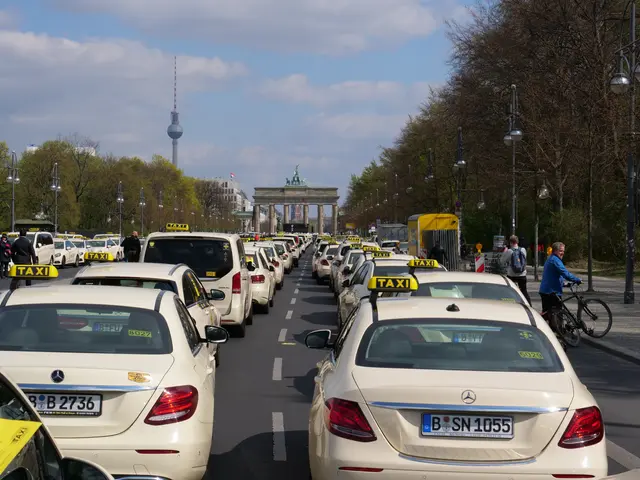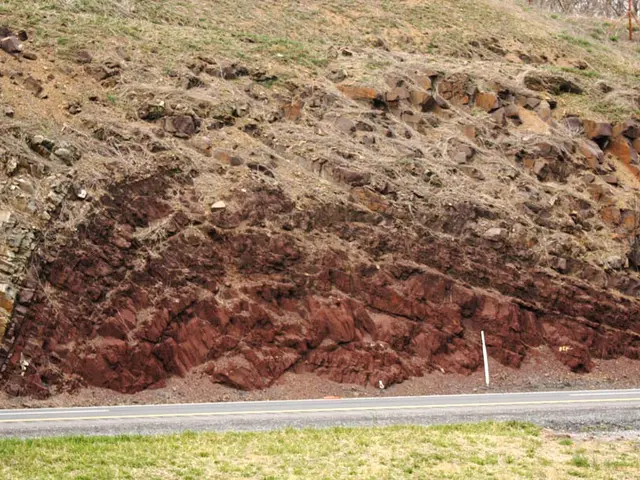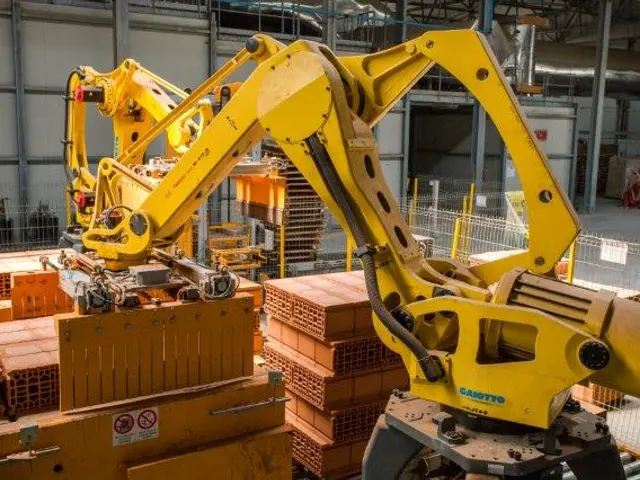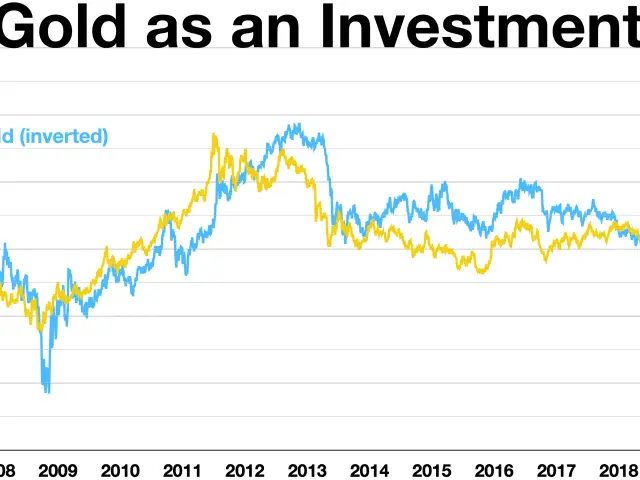Saarland Readies for federal Government's Economic Boost
- *
High hopes in Saarland governing bodies' fresh tenure - Anticipated high hopes for the incoming administration in Saarland
Saarland's Chief Minister Anke Rehlinger (SPD) set high hopes for substantial economic stimuli from the incoming federal government. The collaboration agreement between CDU and SPD offers "workable solutions to the fundamental issues plaguing our region" according to Rehlinger. In her declaration to the Saarland State Parliament, she added, "Now, it's up to Friedrich Merz to transform those promises into action."
"So long as Germany endures economic turmoil, regions like ours – industrial and export-dependent – will bear the brunt," says Rehlinger. "It's now the federal government's responsibility to foster economic growth and social justice," she reiterated.
CDU anticipates political transformation
The leader of the CDU's parliamentary group, Stephan Toscani, views the black-red federal coalition accord as "the foundation for the political transformation Germany requires." Toscani emphasized that this transformation will focus on economic policy, with the elimination of the "ideological ban on combustion engines" and the promotion of technological freedom: "Practicality, reason, common sense – that's the central message of Friedrich Merz and the new federal government."
Migration policy presents an opportunity for the democratic center
Rehlinger describes the black-red coalition as "a responsible partnership for our nation." She sees it as an opportunity for the democratic center to regain public trust. The federal government's migration policy should beranised, bridge gaps rather than widen them. "Our aim is a policy that gradually fades migration concerns from the public consciousness because it is resolved and fosters social harmony," Rehlinger explained.
Of the roughly 130,000 AfD voters in Saarland, "it's apparent that the overwhelming majority aren't hardline right-wing extremists." The democratic center should not discount these voters. Regarding the three AfD members of the State Parliament, she noted, "It's a nightmare that a right-wing extremist party profits from taxpayer funds to undermine our democracy." She added, "I aim to see this extreme right-wing party booted out of our parliament and vanish from people's minds."
The AfD's parliamentary leader, Josef Dörr, disagreed with this assessment. Dörr declared that the label of "right-wing extremist" stems from the constitutional protection: "It's not impartial. The courts will ultimately decide whether that truly applies." It's "entirely premature," Dörr stated, to classify the AfD as right-wing extremist.
Against permanent border controls
Rehlinger believes that reducing illegal immigration entails necessary deportations if legally warranted. Nevertheless, "I don't believe that permanent border controls serve the purpose," she stressed. "Neither the current ones nor those planned to be boosted, as has been announced." The coalition agreement suggests possibilities for repatriations at borders "in consultation with neighboring countries." "From the perspective of Germany's federal chancellor, it would be unwise to offend our European neighbors initially to then seek cooperation on the big questions of Europe," she warned. Rehiring border closures enforced during the Covid pandemic were widely criticized abroad, particularly in Luxembourg. She stated, "Healing the wounds inflicted by a lack of coordination and the offense against our neighbors took a considerable amount of time."
"CDU advocates for border rejections"
Toscani stated that this coalition agreement paves the way for a shift in migration policy. Toscani added that this switch entails temporary border controls. "Until there's effective protection at the EU's external borders, these internal border rejections are vital," Toscani contended.
- Saarland
- SPD
- State Parliament
- Anke Rehlinger
- Federal Government
- CDU
- Coalition Agreement
- AfD
- Friedrich Merz
- Germany
- Stephan Toscani
- Saarbrücken
- Berlin
- Future
- Border Control
Background:
Without explicit details about economic measures in the Saarland region from the coalition agreement between CDU and SPD, here are some broad economic initiatives that could potentially affect Saarland:
- Energy Price Assistance for Industries:
- The new government has agreed to offer a 5-cent electricity price reduction per kilowatt-hour to energy-intensive industries, exempt from electricity taxes and grid fees. This could benefit Saarland's industries, though implementation and EU approval are pending.
- Infrastructure Investments:
- Negotiations involve mutual discussions about distributing funds from an extensive spending package focused on infrastructure and climate neutrality. Although specific allocations for Saarland aren't detailed, such investments could strengthen Saarland's regional infrastructure and stimulate economic growth.
- Fiscal Consolidation:
- The parties are pondering tax hikes as a component of budget consolidation efforts. Depending on how any tax reforms are structured and implemented, this could affect Saarland's economy.
- Accessibility Regulations:
- Although not directly tied to the coalition agreement, a new Accessibility Improvement Act is set to launch in June 2025. This could impact Saarland businesses, particularly those in the digital sector, by mandating heightened accessibility standards. The full impact of these measures remains to be seen, dependent on the final agreement's enforcement and implementation.
- Saarland's Chief Minister Anke Rehlinger of the SPDEXPECTS the federal government, led by the CDU, to STRENGTHEN employment policy to stimulate economic growth and social justice, addressing key issues in their region.
- The CDU, under leader Stephan Toscani, views the black-red federal coalition's agreement on policy-and-legislation as a STRENGTHENED foundation for the political transformation Germany NEEDS, focusing particularly on employment policy and economic policy.
- Rehlinger believes that the federal government should PROMOTE a migration policy that bridges gaps and gradually fades migration concerns from the public consciousness, fostering social harmony, as a way to drug in AfD voters who are not hardline right-wing extremists.
- In the future, expectations are high for the German federal government to ADHERE to the coalition agreement's possibilities for repatriations at borders, avoiding the implementation of permanent border controls.
- The CDU SUPPORTS a shift in migration policy entailing temporary border controls until there's effective protection at the EU's external borders, advocating for border rejections to manage illegal immigration.








